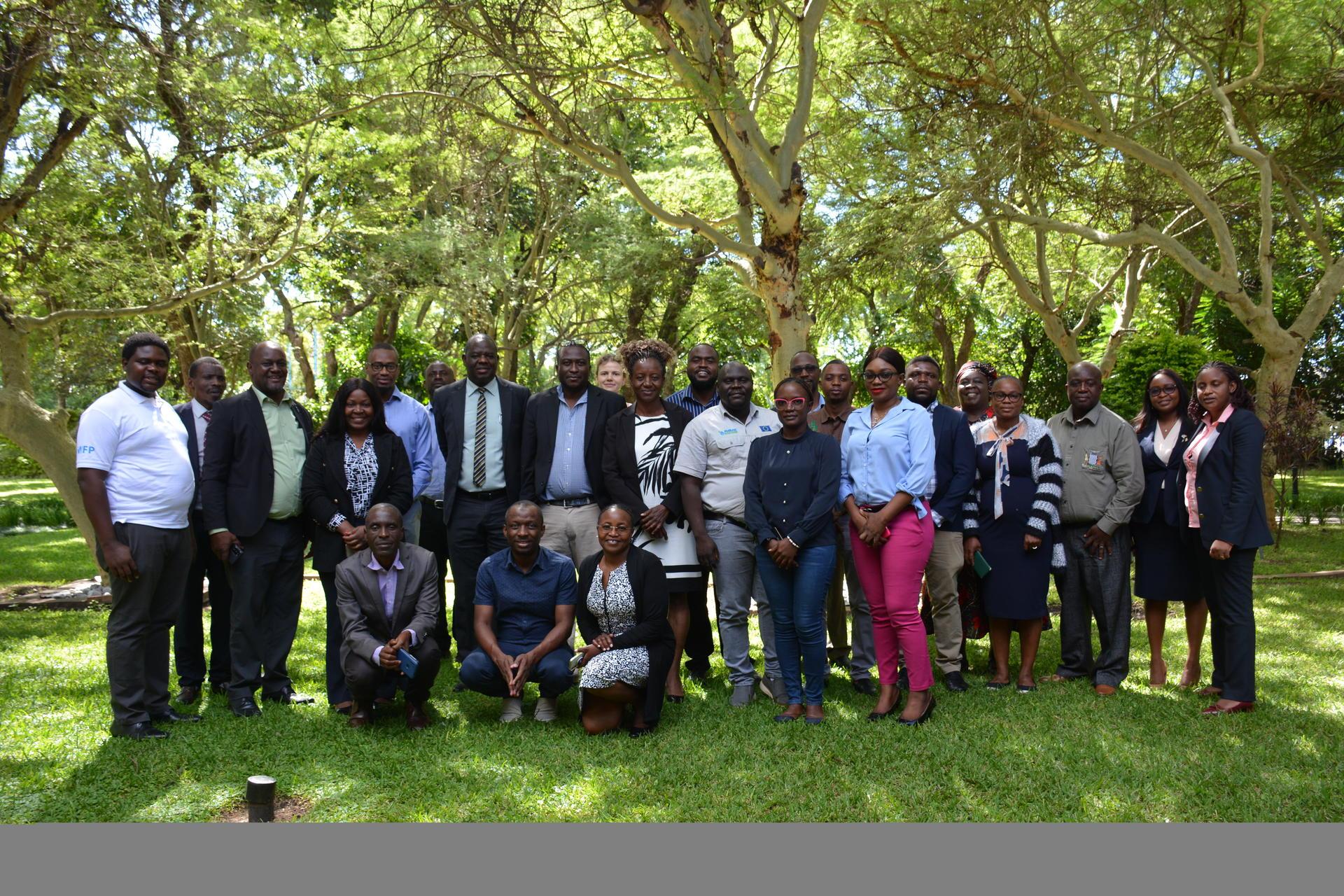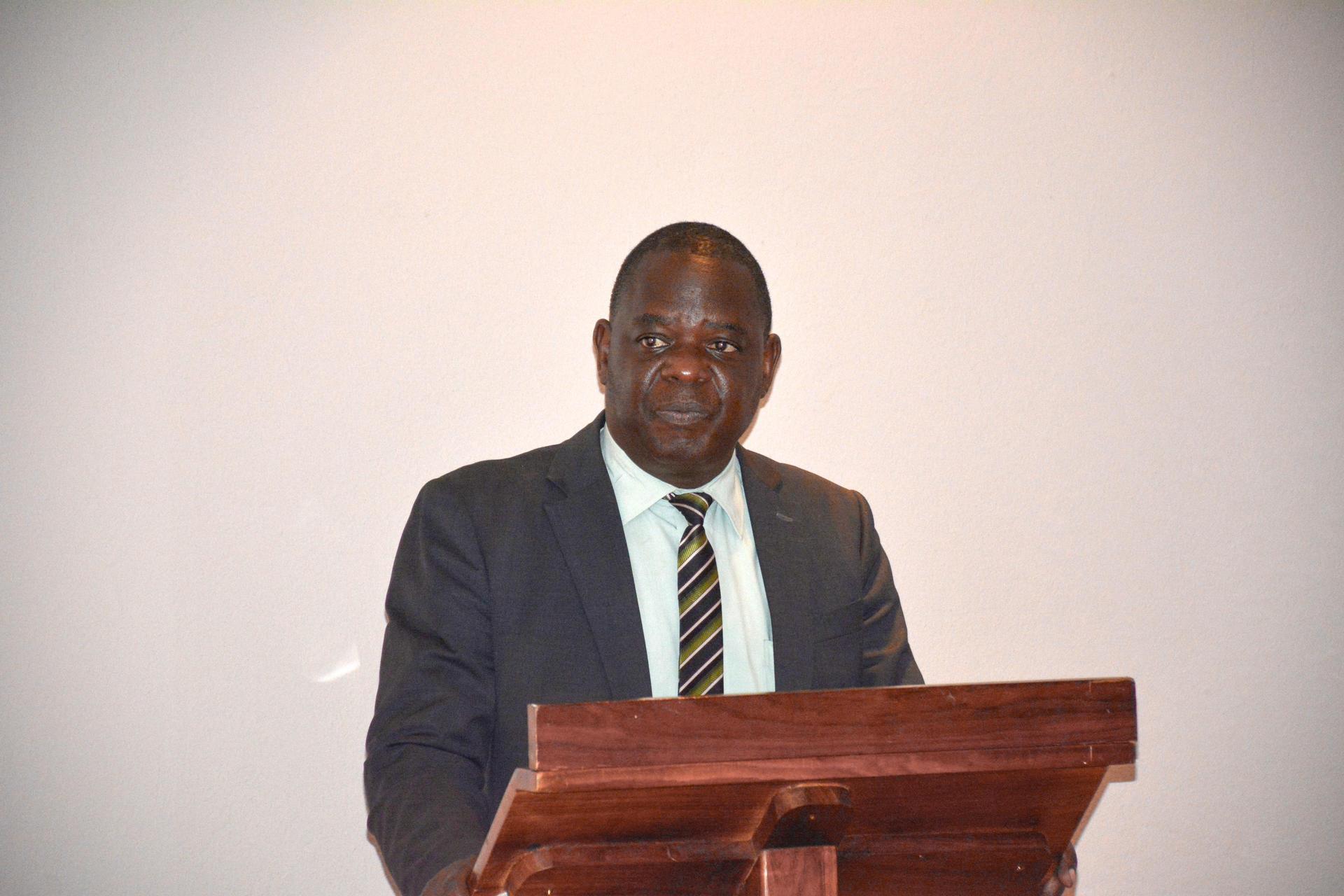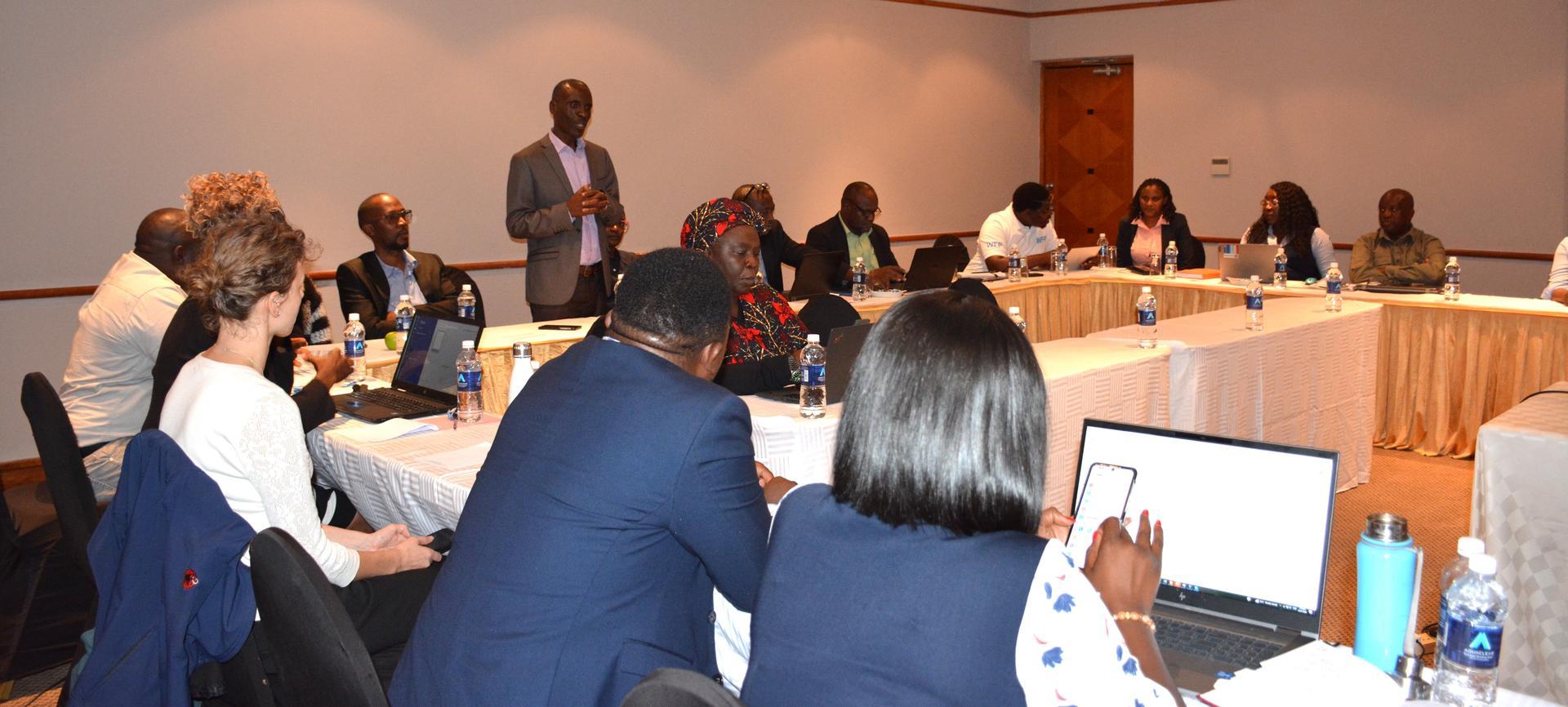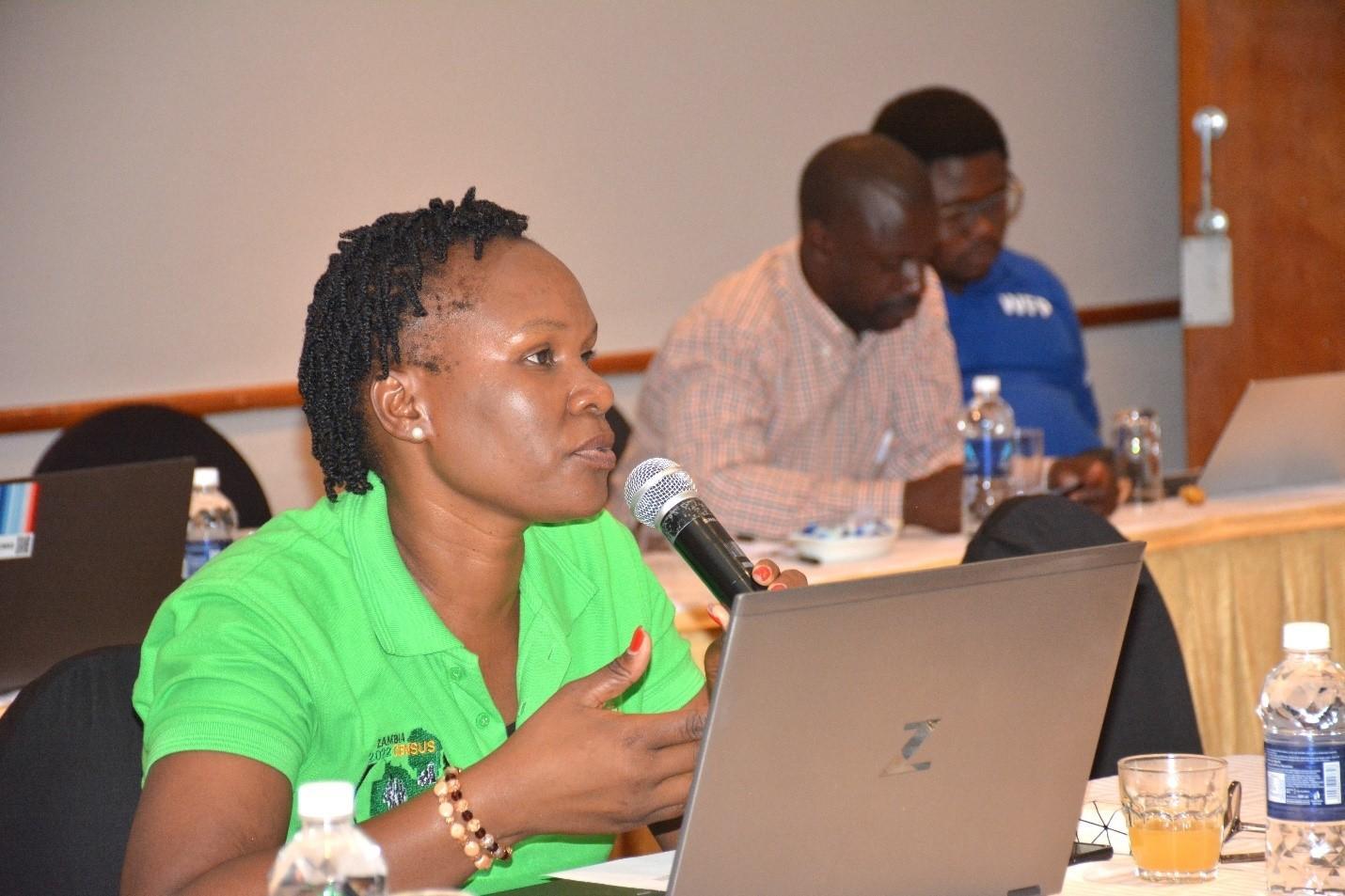Blog Revolutionizing Agriculture: Zambia's E-Extension Service and Crop Monitor Unveiled

Authors: Joseline Kiogora, Anastasia Wahome, Majambo Gamoyo, Pedro Chilambe, Stephen Sande
In the pursuit of agricultural excellence, Zambia is embarking on a groundbreaking journey with the launch of the E-Extension Service. Recognizing the pivotal role of extension and information services in the country's development, the Zambian government, through the Ministry of Agriculture, is leading the charge in establishing a cutting-edge system that aligns with the Vision 2030 agenda.
The urgency of the matter cannot be overstated. Climate change looms as a threat, with potential agricultural losses estimated between US$2.2 and US$3.13 billion in the coming decades. To address this challenge, the adoption of climate-smart agriculture and sustainable development techniques becomes imperative. However, the effectiveness of these solutions hinges on efficient agricultural extension and advisory services, a domain facing challenges due to diminishing human resources and the limitations of traditional top-down approaches.
The E-Extension Service – a digital innovation is poised to reshape how agricultural knowledge is disseminated. In a collaborative effort, the Ministry of Agriculture, World Food Program (WFP), and Alliance of Bioversity and CIAT are actively co-developing and implementing this transformative platform for Zambia.
The workshop officially opened its doors on the 25th of January 2024 on, marking a milestone day in Zambia's agricultural evolution. The Director for Agriculture, Dr. Chizumba Shepande, graced the event with the inaugural address, emphasizing the significance of the E-Extension Service in achieving sustainable farming practices and securing food security for the nation. The E-extension services aligns with the Zambian government’s initiative for digital economy. “The government has an action plan for 2022-2023 where we plan to digitalize all government services” emphasized Dr. Shipande in his opening remarks. He underscored the importance of ensuring that as many farmers are reached by extension services and given that the country has a total of 2600 agricultural camps, and with a poor ration of 1 extension officer for every 1000 farmers, the e-extension will offer a lifeline for farmers to access reliable farming information and advisories.

Dr. Chizumba Shepande, Director for Agriculture in the Ministry of Agriculture, Livestock, and Fisheries in Zambia, delivering insightful keynote remarks at the workshop.
He also noted that despite challenges which include inadequate staff capacity to update and maintain the e-extension portal, internet connectivity challenges, farmers’ inability to access the portal, lack of enough tablets among extension officers and translation of key messages to local languages, the government is committed to ensuring that the initiative is successful and will provide the necessary support. He emphasized the Ministry’s efforts to meet the government’s target of 10 million tonnes of maize, 1 million Tonnes of wheat and 1 million tonnes of beans for the year, reiterating that a mechanization strategy was being finalized and was due for launch in coming months.
He reminded the participants that the e-extension system was not a replacement for the current extension services but is meant to supplement and complement the current efforts by increasing efficiency. Joining him was the Deputy Director for Technical Services, Dr. Malumo Nawa, showcasing the high-level commitment towards this initiative.
As the workshop progressed, the stage was set for monumental outcomes. The workshop was a collective effort to lay the blueprint for the widespread rollout of digital innovation platforms, specifically the E-Extension Service. The goal is to provide critical information on sustainable farming practices, ensuring that farmers across Zambia are equipped to face the challenges posed by climate change.

Participants engage in collaborative discussions during the workshop, setting the stage for transformative outcomes.
Zambia Crop Monitor

Zambia Crop Monitor workshop
Acknowledging the critical need for timely and accurate crop condition information, Zambia's Ministry of Agriculture is collaborating with the NASA Harvest program, University of Maryland and the Alliance of Bioversity and CIAT for a groundbreaking initiative – the Zambia National Crop Monitor. This project aims to integrate satellite remote sensing, national reporting systems, and field data to generate precise and detailed crop reports, enhancing the country's agricultural monitoring capabilities.
Aligned with the SteSSGroup on Earth Observations Global Agricultural Monitoring (GeoGLAM) initiative, the Zambia National Crop Monitor aims to serve as a central hub for collecting, synthesizing, and disseminating critical information on vegetation indices, rainfall patterns and soil moisture conditions. Through this initiative, Zambia aims to bridge the technology gap, empowering decision-makers, farmers and stakeholders with actionable insights for better agricultural planning, emergency response and food security strategies.
The Crop Monitor Workshop was a pivotal step in aligning reporting practices, identifying gaps, and establishing a foundation for a robust national crop monitoring system. The workshop which took place on 26th January brought together stakeholders from various institutions, key among them the Ministry of Agriculture, Livestock and Fisheries, Zambia Meteorological Department, Zambia Statistical Agency, Smart Zambia and World Food Programme among others.
The delivery extension and advisory service work is being carried out with support from the CGIAR initiatives, Diversification for Resilient Agri-food in East and Southern Africa Ukama Ustawi (UU), Climate Resilience ClimBeR and Southern Africa Accelerated Innovation Delivery Initiative AID-I project.
